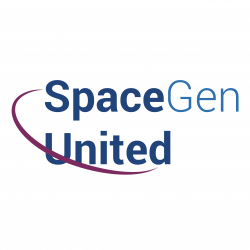SpaceGen United Workshops
The following is a list of Workshops topics that will be the focus of SpaceGen United. Additional detail will be added once it is available so check back regularly for more information.
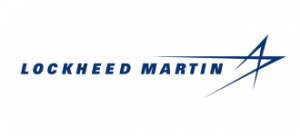
Space Exploration Benefits for Earth-based Industry
We often think of how atypical industries could be leveraged to explore the Moon and Mars. This topic flips the discussion to understand how deep space robotic and human exploration at the Moon and Mars can benefit companies in different industries on Earth. What if you created an autonomous mining system that could be used in dangerous drilling environments? Or created a battery that lasts through the lunar night and can easily handle the cold temperatures to help scientists power equipment at McMurdo station?
Subject Matter Expert
Kat Coderre
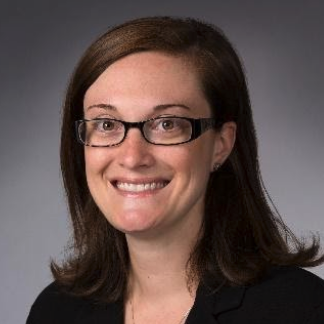
Kat Coderre joined Lockheed Martin in 2007 and currently works with the Human Landing System (HLS) team at Lockheed Martin Space as the Ascent Element External Integration Lead. Kat holds a dual undergraduate degree in Aeronautical and Mechanical Engineering from Rensselaer Polytechnic Institute in New York, and a Master’s in Space Systems Engineering from Steven’s Institute of Technology in New Jersey.
Kat is currently a Senior Staff Systems Engineer with Lockheed Martin Space in Denver, Colorado. Kat has 13 years of experience working in Human Spaceflight, first as a contractor at NASA’s Johnson Space Center in Houston and now in Denver. Most recently she has been working on returning humans to the Moon, currently on the HLS Program, and previously by working with NASA on studies focusing on the Gateway Program, where she led the Lockheed Martin team as the Habitat Element Lead. Kat is also the Lockheed Martin project manager for the AstroRad Vest; a radiation protection vest for astronauts in the deep space environment. Kat’s previous role was the Systems Engineering Lead for the Orion spacecraft Thermal Protection System (TPS). She was the responsible TPS systems engineer for the first three test flights for Orion where she handled requirements management, verification and systems integration tasks. Throughout her career she has worked on several Lockheed Martin contracts supporting NASA’s Space Shuttle and International Space Station programs.
Outside of work, Kat enjoys playing sports such as soccer and softball, hiking and skiing in the beautiful Colorado mountains, and taking her dogs for nice long walks. She also works with a dog rescue where she helps rehabilitate dogs and adopt them out to their forever homes. Kat loves to travel, both domestically and internationally, and holds a private pilot’s license.
Subject Matter Expert
Lisa May
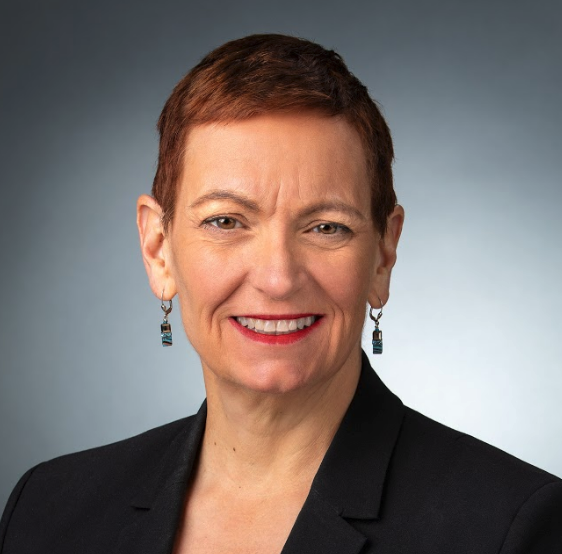
Lisa May is currently Chief Technologist for Lockheed Martin’s Commercial and Civil Space Advanced Programs. Lisa is responsible for leading technology strategy development in support of all market segments and is Advanced Programs’ principal advisor on CCS technology strategy, investments and partnerships. Prior to assuming the Chief Technologist role, Lisa served as the Deputy Space Exploration Architect. She supported Lockheed Martin’s technical response to NASA’s call to take humans safely to the surface of the Moon by 2024. She also managed Lockheed Martin’s Human Landing System architecture studies and technology demonstration efforts under contract to NASA’s Marshall Space Flight Center.
Before joining Lockheed Martin in 2019, Lisa was CEO and principal consultant for Murphian Consulting. She provided systems engineering and management consulting services to technology entrepreneurs in such diverse fields as nuclear, forensics, space, and transportation technology.
From 2002 to 2015, Lisa was at NASA Headquarters, where she managed NASA’s diverse portfolio of Mars missions, led advanced studies, contingency planning, risk analyses, and conducted Program-level planning including Mars communications-asset trend analysis. She was responsible for annual budget formulation and execution for the $500M program and planned, developed, and negotiated budget and resource allocations. Lisa chaired the International Mars Exploration Working Group, leading spacefaring nations in cooperation for Mars sample return. Lisa initiated and supported Mars-related challenges and student competitions. Concurrently, Lisa was the Program Executive for the Mars Atmosphere and Volatile EvolutioN (MAVEN) mission, the Mars Technology Program, and Mars Sample Return. Throughout MAVEN development, Lisa ensured Agency requirements were met and managed budget development and funding execution. She developed Mars Sample Return architectures and requirements and led international collaboration efforts. Lisa also managed Mars technology initiatives including technical direction, scheduling, and budgetary planning. Other Headquarters positions Lisa has held include Agency Tender Official for the 2003 Shared Services Center procurement and Special Assistant for Strategic Planning. Prior to joining NASA Headquarters, Lisa worked at NASA Goddard Space Flight Center, founded Jackson-May Associates, and was Director of Business Development at Aurora Flight Sciences.
Lisa holds a master’s degree in mechanical engineering (1984) and a bachelor’s degree in speech communication (1982), both from the University of Virginia. In addition to being an AIAA senior member, Lisa is an INCOSE member and earned the society’s Expert Systems Engineering Professional certification. Lisa is also an IEEE member and serves on the annual IEEE Aerospace Conference Organizing Committee as Vice-Chair of the Paper Review Committee.
Subject Matter Expert
Danielle Richey
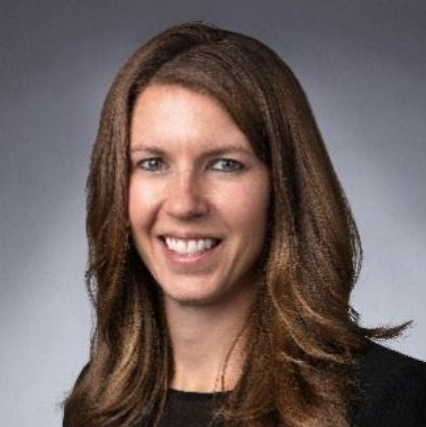
Danielle Richey is a systems engineer, architect, and program manager at Lockheed Martin, where she focuses on defining and enabling the future path of human exploration to the Moon, Mars, and beyond. She joined Lockheed Martin in 2008 and has worked on multiple projects in Defense related to cybersecurity and early missile warning and Civil Space, including Orion and the NextSTEP Habitat program. Danielle has a Bachelor’s and Master’s of Science in Aerospace Engineering from the University of Colorado, with an emphasis in Bioastronautics.
Moderator
Morgane Royer
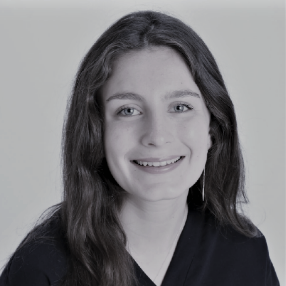
Morgane passed the bar after graduating in Space Law and Telecommunications at Paris Sud University. She’s currently working for LMI Advisor on satellite regulatory matters. She has been involved in the European Center for Space Law by participating and organising the Manfred Lachs Space Law Moot Court as well as by being the Student Representative for the year 2018/2019. Morgane is part of the SGAC space law and policy group where she has worked with the center for a spacefaring civilization and is now working on the implementation of the Hague Building Blocks for the Development of an International Framework on Space Resource Activities in national law.
Moderator
Daniel Wischert
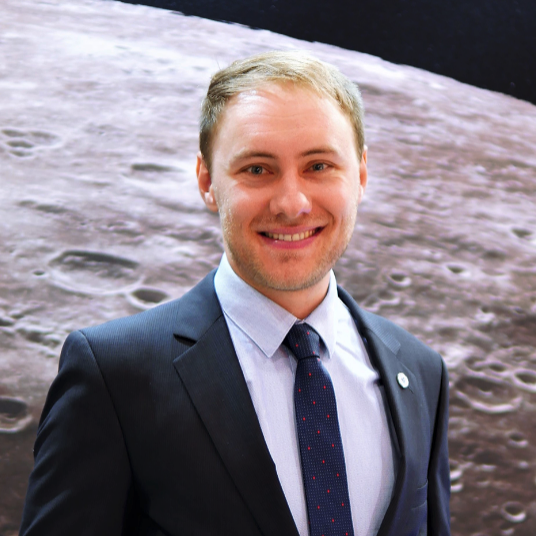
Daniel Wischert holds a M.Sc. in Aerospace Engineering from the University of Stuttgart, Germany. After his studies he joined the European Space Agency (ESA) through the national trainee programme of the German Aerospace Center (DLR) where he now works in the Concurrent Design Facility (CDF) at ESTEC in the Netherlands. As a space systems engineer Daniel supports the feasibility assessment and conceptual design of future space missions and new spacecraft concepts for all ESA programmes. Daniel is very passionate about pushing the development of space flight and deep-space exploration activities and has been involved in different projects, mission proposals and research activities for DLR, ESA, NASA and JAXA. Three missions Daniel has worked on during his university studies will be launching in the coming years – both SOURCE and Sentinel-5 2021 to low-earth orbit, and DESTINY+ 2023 to asteroid Phaethon. Daniel has been an active member of SGAC since he attended SGC 2017 in Adelaide, Australia.
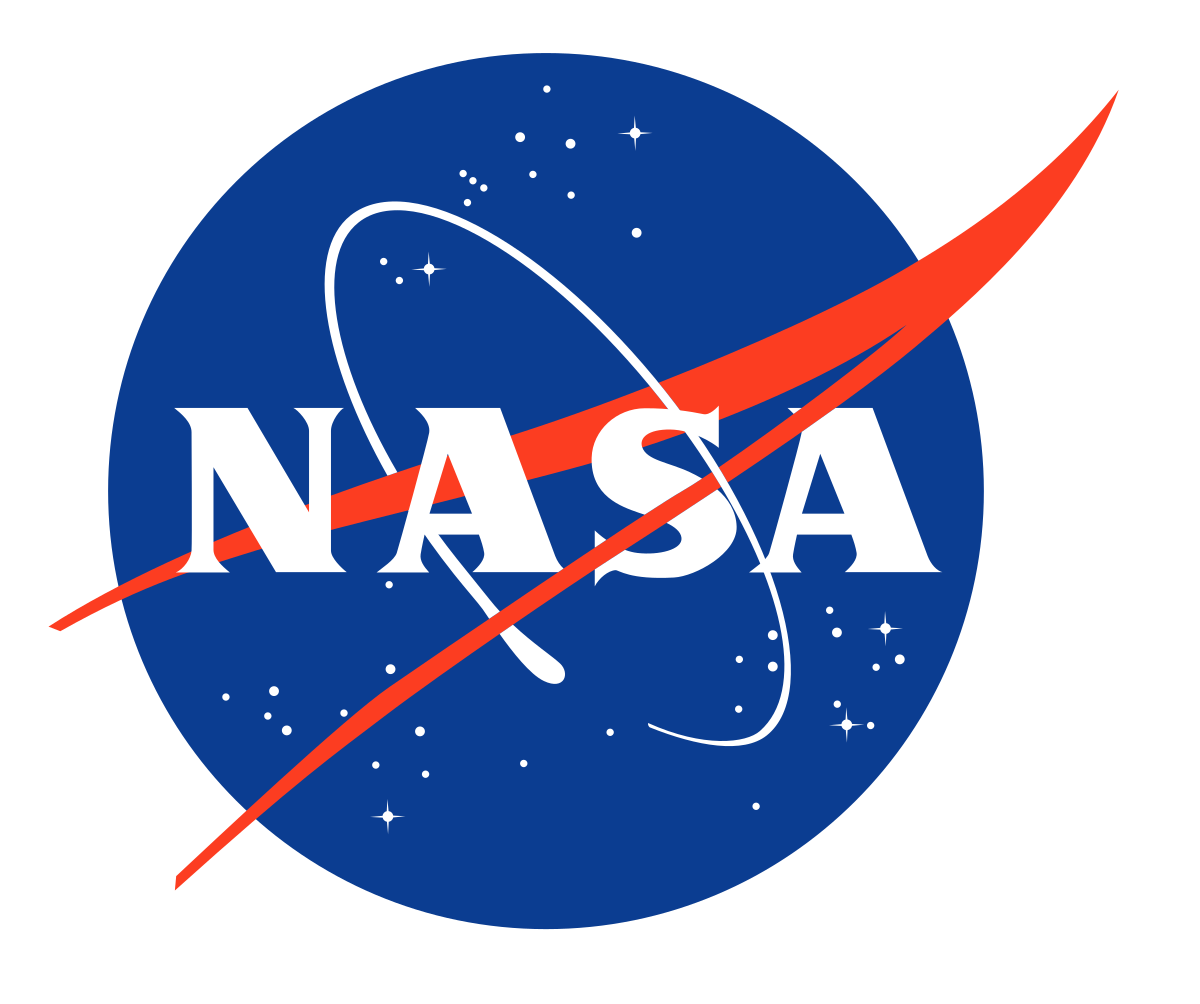
NASA Exploration Workshop
NASA has accepted a bold challenge to land the next man, and the first woman, on the lunar South Pole in 2024. The agency is leading the Artemis program to realize that goal by leveraging the combined expertise of its workforce, U.S. industry, and international partners to develop a robust human presence on and around the Moon that will ultimately lead to a sustainable lunar infrastructure. In establishing this permanent presence, NASA and its partners will begin preparing for human missions to Mars by advancing the technologies, systems, and operations required for human exploration beyond the Earth-Moon system. While the global human spaceflight community has been united around the common goal of sending humans back to the Moon, alignment on planning for human Mars missions will be the next global endeavor for human exploration.
The following questions should be addressed by the Exploration Working Group:
- What are the primary tenets of sustainability at the Moon that will ensure global partners are in a confident position to embark on the first human mission to Mars? Traits of sustainability may include repeatability, affordability and reusability, but this group also should think beyond those traits with strong recommendations for specific objectives for sustainability.
- What are the key areas of science, technology, and exploration advancement that international space agencies can begin working on now to ensure a common architecture and unified plan to begin human Mars missions in the 2030s?
- What are the benefits of an integrated, international Mars mission campaign compared to multiple efforts led by different countries or individual companies?
Subject Matter Expert
Clark Etsy
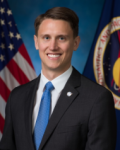
Clark Etsy grew up in the mountains of Utah and has received a BS in Physics from Georgetown University and an MS in Aerospace Engineering from the University of Maryland. His current role within the Mission Analysis & Integrated Assessments (MAIA) team focuses on working with each of the major programs (SLS, Orion, HLS, etc.) and integrating mission design and planning from concept through transition to flight operations for the Artemis III mission to return astronauts to the surface of the Moon.
Subject Matter Expert
Patrick R. Chai
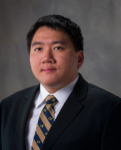
Dr. Patrick R. Chai is an Aerospace Engineer at NASA Langley Research Center in the Space Mission Analysis Branch within the System Analysis & Concepts Directorate. He is the Langley Center lead for NASA’s Mars Integration Group and leads the In-Space Transportation Assessment Team. He received his B.S., M.S., and Ph.D. from the Georgia Institute of Technology in 2007, 2010, and 2014 respectively.
Subject Matter Expert
Michelle Rucker
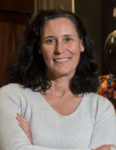
Michelle Rucker is a native of Anchorage, Alaska and a 34-year veteran of NASA. She began her career in the Houston oil industry, designing down-hole sensors while pursuing undergraduate and graduate degrees in Mechanical Engineering from Rice University. Michelle has had the good fortune to participate in a range of exciting projects, such as: International Space Station (ISS) environmental control and life support system development, operating a two-stage light gas gun hypervelocity impact research laboratory, supervising spacesuit and Extravehicular Activity (EVA) tools projects, ISS exercise equipment system engineering, and Orion and Altair lunar lander test and verification. She currently leads the Mars Integration Group, developing crewed Mars mission concepts.
Subject Matter Expert
Nehemiah Williams
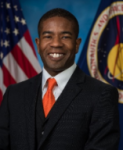
Nehemiah Williams is originally from Philadelphia, Pennsylvania but spent much of his childhood in his hometown of Sicklerville, New Jersey. Nehemiah’s higher education includes B.S. degrees in Biblical Studies from Philadelphia Biblical University in Langhorne, Pennsylvania (2004) and Mechanical Engineering from Temple University in Philadelphia, Pennsylvania (2008) and both an M.S. and a Ph.D. in Aerospace Engineering, each from the University of Tennessee Space Institute in Tullahoma, Tennessee (2010, 2016). Nehemiah entered full time civil service at NASA’s Johnson Space Center (JSC) in 2016, working initially as a rocket engineer, where he supported small scale rocket engine testing and computational fluid dynamics analysis in the Propulsion and Power Division at JSC. Currently, Nehemiah serves as the Integrated Vehicle Performance lead in the Orion Program’s Vehicle Integration Office (VIO) where his primary responsibilities include verifying the functional capabilities of the Orion spacecraft’s integrated sub-systems (e.g. propulsion, thermal, life support systems and power) and communicating vehicle performance to various stakeholders in support of Project Artemis, NASA lunar exploration initiative.
Moderator
Martin Losekamm
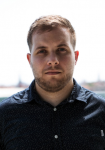
Martin J. Losekamm holds a M.Sc. in Applied and Engineering Physics from the Technical University of Munich (TUM). He is a doctoral candidate at TUM and develops sensor systems for exploration spacecraft, with a particular focus on radiation sensors. He is the Co-Principal Investigator of the RadMap Telescope experiment on the International Space Station and leads TUM’s work on developing instrumentation for the LUVMI-X lunar rover. Martin also manages the Laboratory for Rapid Space Missions of the DFG Cluster of Excellence ORIGINS.
Moderator
Matej Poliacek

Matej a young space professional currently based in Bratislava, Slovakia, working on rover technologies. Formerly a Young Graduate Trainee at ESTEC, European Space Agency, he worked in the Software Systems division and was primarily involved with data modelling and software engineering activities. Matej completed his education at the University of Glasgow, first with a BSc in Statistics and afterwards with a MSc in Software Development.

Planetary Defense: Safeguarding Earth
Planetary defense is gaining more and more attention over the years as our awareness of the space environment expands and the increasing number of close approaches that have been documented recently. As missions to asteroids and comets expand our knowledge of these celestial bodies and the risk of an asteroid impact becomes better understood, this topic becomes of increasing importance. Events like the Chelyabinsk meteor (Fig. 1) and the Tunguska impact (Fig. 2) among many others, remind us of the importance of planetary defense research and efforts. Planetary defense focuses on the study of potentially hazardous objects that are predicted to either impact or have a close approach to Earth. This may include impact evacuation planning or object trajectory evaluation, as well as possible impact mitigation strategies.
Objectives:
1. Educate the delegates on key concepts and requirements of Planetary Defense
2. Raising the voice of the delegates s to provide interesting recommendations for the future of the Planetary Defense and UNOOSA
3. Increase of public awareness and engagement with Planetary Defense concepts
Focus Questions:
1. What technologies are available to study and, possibly, prevent the impact?
2. Is mitigation necessary?
3. What are the main concerns of the various people affected?
4. How will the public react?
5. How to provide accurate and timeless information to the public and various decision makers?
6. If it is not going to hit me, should I use my taxpayer money to do something?
 |
 |
|
Fig. 1: Chelyabinsk meteor as it approaches the city. On February 15th, 2013, a ~20 m NEO exploded over Chelyabinsk, Russia, releasing ~0.5 Mt of energy and injuring ~1,600 people. |
Fig. 2: Devastation caused by the Tunguska meteor impact. On June 30, 1908, a ~60 m NEO exploded over Tunguska, Russia, releasing 10-15 Mt of energy. |
Subject Matter Expert
Patrick Michel
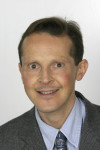
Dr. Patrick Michel is an international expert of asteroids born in the famous village Saint-Tropez in France. He is Director or Research (PhD) at CNRS (French Scientific Research National Center) and leads the team TOP (Theories & Observations in Planetology) of the Lagrange laboratory at the Côte d’Azur Observatory (Nice, France). With more than 150 publications in international peer-review journals, he develops numerical simulations of the impact process between asteroids and of asteroid surface behaviors in conditions that are very different than those on Earth. He is the Principal Investigator (PI) of the investigation team of the space mission Hera, under development at ESA in the Space Safety Program, for launch in 2024 which will contribute to the first test of deflection of a potentially hazardous asteroid with the NASA DART mission by investigating the binary asteroid target and the impact outcome in great details. He is co-Investigator of the two asteroid sample return space missions, Hayabusa2 (JAXA) and OSIRIS-REx (NASA). He is co-PI of the CNES-DLR rover onboard the Phobos sample return MMX mission (JAXA) that will be launched in 2024 and Deputy Lead of the Martian Moons Surface Science Working Group. He is also coordinating the NEO-MAPP project funded by the H2020 program of the European Commission (2020-2023), involving 15 laboratories and industries to study asteroid deflection. He is the lead Editor of the book Asteroids IV (University of Arizona Press, 2015), which reviews asteroid knowledge. He is the President of the Near-Earth Object Working Group of the International Astronomical Union and is a member of the Steering Committee of the International Asteroid Warning Network (IAWN). He was awarded the NASA Silver Achievement Medal, the Carl Sagan Medal by the Division of Planetary Science of the American Astronomical Society for Excellence in Public Communication in Planetary Science, the Prize Paolo Farinella 2013 for his contribution to our understanding of the collisional process, the Prize Young Researcher of the French Society of Astronomy and Astrophysics (SF2A) and the asteroid (7561) Patrickmichel is named after him.
Subject Matter Expert
Kelly Fast
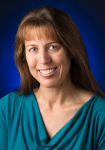
Kelly Fast is the Near-Earth Object Observations Program Manager for NASA’s Planetary Defense Coordination Office and currently manages NASA’s organizational responsibilities for the International Asteroid Warning Network. She earned her B.S. in Astrophysics from UCLA and her M.S. and Ph.D. in Astronomy from the University of Maryland. She investigated ozone and atmospheric chemistry on Mars, winds on Titan, and the effects on Jupiter’s stratosphere of small body impacts as an astronomer at NASA’s Goddard Space Flight Center before coming to NASA Headquarters in 2011. Previously a visiting astronomer at NASA’s Infrared Telescope Facility (IRTF) on Maunakea, Hawai’i, she is also now the IRTF Program Scientist. Dr. Fast served as Program Scientist for the MAVEN mission to Mars and she led NASA’s Solar System Observations, Planetary Astronomy and Planetary Atmospheres research programs. Main-belt asteroid 115434 (2003 TU2) was renamed “Kellyfast” in honor of Dr. Fast’s contributions to planetary science.
Subject Matter Expert
Linda Billings
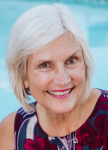
Linda Billings is a consultant to NASA’s Planetary Defense Coordination Office on communication strategy and planning.
Dr. Billings earned her Ph.D. in mass communication from Indiana University. Her research interests include science and risk communication, social studies of science, and the history and rhetoric of science and space exploration. Her papers have been published in Acta Astronautica, Advances in Space Research, Biological Theory, Scientific American, Space News, Space Policy, and Theology and Science. She is a contributing author for several books, including First Contact: The Search for Extraterrestrial Intelligence (1990), Societal Impacts of Space Flight (2007), and The Impact of Discovering Life Beyond Earth (2015).
Dr. Billings has worked in the aerospace community for 35 years, primarily in Washington, D.C. She was elected a Fellow of the American Association for the Advancement of Science in 2009. She now lives in Sarasota, Florida, with a cat named Fritzie, who she sometime thinks must have come from outer space.
Subject Matter Expert
Andy Rivkin

Dr. Andrew (“Andy”) Rivkin has been studying asteroids since his undergraduate days, with dissertation work consisting of taking and analyzing infrared spectra of asteroids. His focus on asteroids continued in the intervening 21 years since his PhD, with 26 first-author peer-reviewed papers on asteroids and small bodies and as a co-author on an additional 55 peer-reviewed papers as of mid-2018. Many of these focused on NEOs specifically. In addition to these papers, he has led chapters in both the Asteroids III and Asteroids IV review books, led and contributed to chapters in other books, and wrote a textbook on small bodies. With a research focus of asteroids, including NEOs, Rivkin has been involved in many planetary defense studies over the years. He was a participant in the 2006 NASA Near-Earth Object Detection and Threat Mitigation Workshop in Vail and contributed to the final report, and participated in several of the AIAA Planetary Defense Conferences since then, and was a member of the “Finding Hazardous Asteroids Using Infrared and Visible Wavelength Telescopes” study done by the National Academies of Science, Engineering, and Medicine. He is one of two Investigation Leads for the Double Asteroid Redirection Test (DART) mission, launching in 2021 and impacting Dimorphos, the satellite of the Didymos system, in 2022.
Subject Matter Expert
Romana Kofler
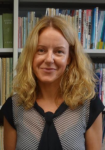
Romana works as Programme Officer at the UN Office for Outer Space Affairs (UNOOSA), the Committee, Policy and Legal Affairs section. Her work includes supporting intergovernmental negotiations pertaining to space matters in the UN Committee on the Peaceful Uses of Outer Space, its Subcommittees and Working Groups, including as the Secretary to the Working Group on the “Space2030” Agenda, a policy document negotiated by States for strengthening the use of space for global development. She serves as the Secretariat to the Space Mission Planning Advisory Group (SMPAG) and cooperates with the International Asteroid Warning Network (IAWN) in furthering international efforts to prepare to meet a potential threat to our planet by hazardous near-Earth Objects (NEOs). She holds a Bachelor’s Degree in International Relations – Political Science from the University of Ljubljana, Faculty of Social Sciences and a Master’s Degree in Asia-Pacific and International Relations from the Hitotsubashi University, Tokyo, Japan. Romana joined the United Nations after successfully passing the Young Professionals Programme Exam. Prior to that, she worked as an Adviser to the parliamentary Committee on the EU Affairs in the Slovenian National Assembly.
Subject Matter Expert
Gerald Drolshagen
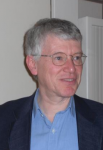
Dr. Gerhard Drolshagen studied physics at the Universities of Giessen and Göttingen. He received his Doctor Degree at the University of Göttingen in 1981. He was a Post-Doc at the Los Alamos National Laboratory in Los Alamos, USA and then a Scientific Assistant at the Max-Planck Institut für Strömungsforschung in Göttingen. In 1987 he joined the European Space Agency at its Research Center ESTEC in Noordwijk, The Netherlands where he worked until end of 2016. At ESA he worked as a senior analyst in the Space Environments & Effects Section at ESTEC. He was involved in many aspects of the space environment, like the analysis of surface and internal charging effects, ionising radiation, and atomic oxygen in the upper atmosphere. In later years the main emphasis of his work was on the study of meteoroids and space debris fluxes and their effects on orbiting spacecraft. Since 2009 he was co-manager of the near-Earth object segment of ESA’s Space Situational Awareness Programme. This SSA-NEO programme addresses all NEO related aspects from observations, orbit calculation and predictions of potential impacts with Earth to the assessment of NEO mitigation options. Since its creation in 2014 he is chair of the Space Mission Planning Advisory Group (SMPAG) which was initiated by the United Nations and assesses options to prevent the impact of a threatening object from space. Since 2017 he is supporting the new group on Space Environment Studies at the Carl von Ossietzky University of Oldenburg by supervising students and giving a lecture on the space environment. He also provides consultancy to ESA in the NEO field. Asteroid 332733 is named ‘Drolshagen’ to honour him as a driving force of the European NEO Programme.
Subject Matter Expert
Alissa J. Haddaji
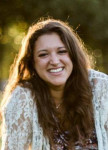
Dr. Alissa J. Haddaji is a faculty researcher and lecturer in Space Law, Policy and Sociology of Space (Astrosociology) at Harvard University and a lecturer on law at Harvard Law School. She founded the Space Consortium at Harvard & MIT, and Space Week at Harvard. She is the lead coordinator of the United Nations-mandated Space Mission Planning Advisory Group (SMPAG) Legal Working Group on Planetary Defense where she also represents the Committee on Space Research (COSPAR). She is a Planetary Protection and Defense legal and policy consultant for the US Institute for Defense Analysis (IDA). Dr. Haddaji is a UNOOSA Space4Women network mentor, an organizing committee member of the International Academy of Astronautics’(IAA) Planetary Defense Conference, a member of the International Astronautical Federation’s (IAF) Near-Earth Object Committee and of the International Institute of Space Law (IISL). Prior to her Planetary Defense work, Dr. Haddaji held the positions of senior researcher in Space Economics at Harvard Business School, of fellow in Science and Technology Studies at Harvard Kennedy School and of visiting researcher at the George Washington University’s Space Policy Institute in Washington DC. She also served for four years as COSPAR’s Planetary Protection Project Officer, where she co-authored and led the coordination of, the International Planetary Protection Handbook (IPPH) and created international Planetary Protection trainings in America, Europe and Asia. Dr. Haddaji has BAs in World History/International Relations and Socio-Anthropology, MAs in American History, Political Science & Law, and Science & Technology Studies and an MS in Planetary Science applied to Space Oceanography. She defended her first PhD dedicated to International Natural Disaster Management applied to Planetary Defense in 2019. She is currently finishing her 2nd PhD (remotely) at École Normale Supérieure (ENS), Paris, on International Space Politics and its social glass ceilings.
Moderator
Luisa Buinhas

Luisa is a Researcher at the Institute of Space Technology & Space Applications of the University of the German Federal Armed Forces. Currently finishing her PhD in the field of formation flying and maneuver optimization, she has spent the last years involved in several DLR-led mission studies for satellite constellations both for deep-space and planetary applications. Luisa completed her Master’s degree at TU Delft, in the Netherlands in 2012, and spent six months at the Massachusetts Institute of Technology (MIT) as a research intern. She holds an Amelia Earhart Fellowship from 2016. In her free time, Luisa explores unusual corners of the world with her backpack and tiptoes out on the dancefloor as an enthusiastic Bachata dancer. Luisa is passionate for education and is an advocate of bringing knowledge to the public as much as possible through fun and informative initiatives. She is thus involved with science outreach in Munich, while also teaching at university. Luisa first experienced SGAC in Adelaide, Australia, in 2017 as a participant and is very enthusiastic about joining SGU in 2020 as a moderator.
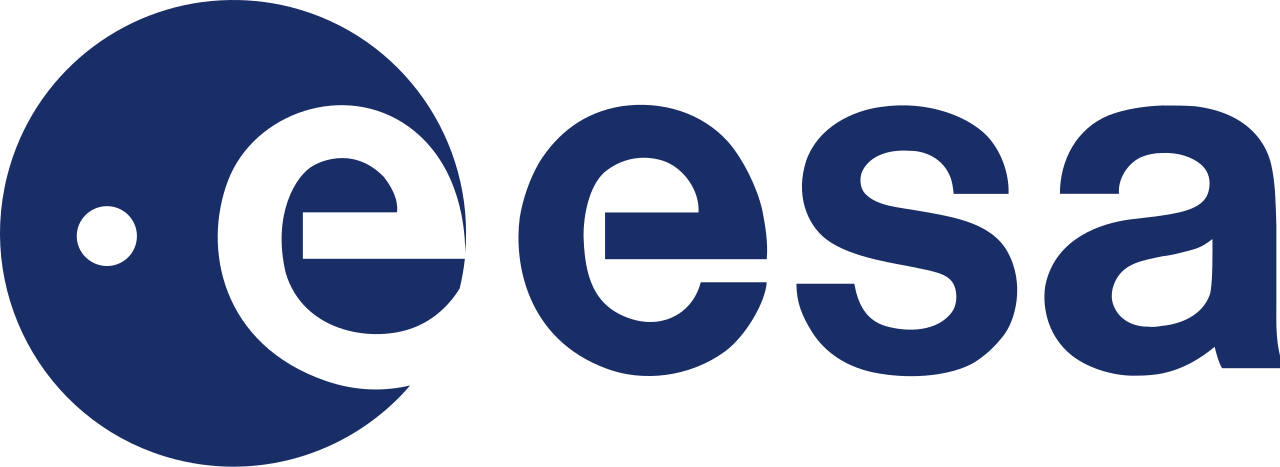
Virtual Hackathon with ESA – Solving a life indoors
Subject Matter Expert
Xavier Lobao
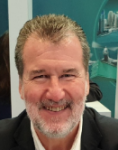
Xavier Lobao accumulates more than 30 years of professional experience in the space sector, primarily in satellite telecommunications. He joined the European Space Agency (ESA) in the year 2000 and has held since a number of different roles in the Telecommunications Department. Since 2012 he is the Head of the Future Projects Division, with responsibility over the setting up of new projects and initiatives in the telecommunication domain. In his position he overlooks trends in the telecommunication and satellite sector and tries to define the best supporting programmes to enhance industry’s competitiveness in the global market, mainly through Public-Private Partnerships. The role of satellite in 5G, Megaconstellations (satcom constellations) and communications on the Moon are areas of strong focus currently, together with technological trends such as Optical communications and optimisation in the usage of RF spectrum for space systems. He graduated from the Polytechnic University of Catalonia (UPC) as a Telecommunication Engineer (MSc), attended the International Space University (ISU) Summer Session Programme and holds a Master in Business Administration (MBA) from the Rotterdam School of Management (RSM).
Subject Matter Expert
Gonzalo Mercado
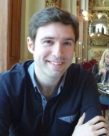
Gonzalo Martin de Mercado works as part of the ESA Business Applications and Space Solutions programme. His focus is on bringing Space-related innovation to market and bridging the gap between public and private funding mechanims. Gonzalo worked previously as a project manager for INSA (today ISDEFE), a public company property of the Spanish Ministry of Defence, as well as for Atos Origin. He is a Telecommunications Engineer (MSc, University of Valladolid), PRINCE2® and MSP® certified project and programme manager, part of the alumnae of the Polytechnic University of Madrid (Spain) and Henley Business School (UK). Gonzalo run the eHealth for sub-Sarahan Africa Initiavite sponsored by the EU-Africa Infrastructure Trust Fund ESA and The Luxembourg Agency for Development Cooperation. He works with many companies advicing on the value of space technology for healthcare and other sectors.
Subject Matter Expert
Mauro Cordani
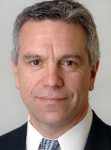
Mauro Cordani has over 30 years’ experience in the telecommunications industry. He is currently employed at the European Space Agency (ESA) and is responsible for ESA’s 5G Future Programmes. Previously he worked in the mobile industry for Giesecke and Devrient as SVP of Products and Solutions responsible for mobile security projects for MNOs and device makers. He is a veteran of the satellite industry having spent 20 years at Intelsat where he established the Intelsat Managed Services business. He has also worked as a self-employed consultant, and in leadership roles at Siemens, GTE and at a mobility start up in numerous telecom sectors.
Moderator
Josh Schertz
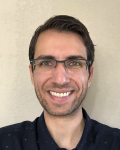
Josh is a software engineer, serial entrepreneur, and Space Resources Master student at the Colorado School of Mines. He is currently a Graduate Researcher developing laser power beaming technology for eventual deployment at the lunar poles. Josh’s background is in finance, having received dual BBAs in finance and accounting from University of Texas at San Antonio. He worked at a Fortune 10 company on financial projections and transfer pricing, before cofounding an algorithmic trading firm. After an opportunity to tour SpaceX’s Hawthorne factory, he was inspired to change careers into the space industry. Beyond the quantitative, Josh is also a science communication journalist at TheSpaceResource.com, a news platform he cofounded. Josh’s passion is in empowering people to build a better world, whether that’s through technology, science outreach, or by providing a friendly ear. Josh has held an Event Finance Manager position within SGAC, and is the next SGAC Treasurer.
Moderator
Tasman Powis
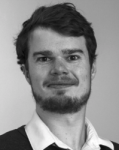
Tasman Powis is an Australian expat, currently completing his PhD at Princeton University within the Mechanical and Aerospace Engineering Department. His research focus is on the modelling of low temperature plasmas, including advanced spacecraft propulsion concepts. He also researches regulation and policy related to the use of nuclear power systems in outer space, with the aim of motivating their peaceful, safe and reliable application. Tasman is a long time SGAC member and since his first SGC in Naples 2012, is fortunate to have attended numerous SGAC events. He is excited to pursue another opportunity to give back to the SGAC community!
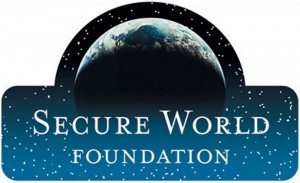
UN COPUOS Simulation
Description:
During the ongoing pandemic, most work and school activities have shifted online, including this event! The UN is also currently facing this situation and the United Nations Committee on the Peaceful Uses of Outer Space (UN COPUOS) sessions are being transitioned to online platforms. Therefore, delegates will have the opportunity to face this additional challenge and participate in a virtual UN COPUOS simulation.
The aim of the UN COPUOS Session will be for the delegates to act as government representatives to create a draft treaty for In-Situ Resource Utilization (ISRU) on the Moon based on draft texts submitted by two countries. Some nations have ambitious plans to commercially mine the Moon’s rich mineral resources. However, a majority of countries have ratified the 1967 Outer Space Treaty, whose Article II mandates that “outer space, including the Moon and other celestial bodies, is not subject to national appropriation by claim of sovereignty, by means of use or occupation, or by any other means.” Can this be resolved in a single treaty?
The session will be run by a chairperson, delegates will be assigned to different countries and will work towards achieving the objectives through formal sessions, SME interactions, and informal discussions within smaller sub-groups. Delegates will be provided with briefs and documentation ahead of the first formal UN COPUOS session on Day 1 of SpaceGen United.
Objectives:
- Delegates will gain an understanding of the COPUOS process.
- Delegates will work collaboratively to develop a final treaty for ISRU on the Moon.
- Delegates will represent their national interests to gain an understanding of the difficulty of international negotiations.
- Delegates will learn to think critically about key areas of space policy and law for the development of international agreements for cooperation in space.
Final Outcomes:
- A finalized compromise treaty document.
Subject Matter Expert
Josh Wolny
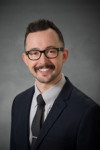
Josh Wolny is a Project Manager at Secure World Foundation. As a project manager, Mr. Wolny works to support all of the issue-areas that SWF is engaged in with research, event planning, and independent publications. His specific interests are space weather policy, space situational awareness, other security issues, remote sensing, and space commercialization. Prior to moving to D.C. for graduate education, Mr. Wolny was an eighth-grade science teacher in Cleveland, Ohio.
Subject Matter Expert
Chris Johnson

Chris Johnson is the Space Law Advisor for Secure World Foundation and has nine years of professional experience in international space law and policy.He has authored and co-authored publications on international space law, national space legislation, international cooperation in space, human-robotic cooperative space exploration, and on the societal benefits of space technology for Africa.
Prior to joining SWF, Mr. Johnson worked as an attorney in New York City and entered the space field in 2010 as an intern at the United Nations Office for Outer Space Affairs (OOSA) in Vienna, Austria during the 53rd Committee on the Peaceful Uses of Outer Space. He has also served as an intern in the Office of International and Interagency Relations (OIIR) at NASA Headquarters in Washington, DC, and as a legal stagiaire in the International Law and EU Legal Affairs division at the European Space Agency’s Legal Department at ESA Headquarters in Paris, France. As a member of the Space Generation Advisory Council (SGAC), Mr. Johnson co-founded the Space Law and Policy Project Group in 2012.
Mr. Johnson serves as a Professor of Law (Adjunct) at the Georgetown University Law Center in Washington D.C., where he co-teaches the spring Space Law Seminar. He is also Adjunct Faculty at the International Space University (ISU) in Strasbourg, France, the Legal Advisor for the Moon Village Association (MVA); and a Core Expert and Rule Drafter in the Manual on International Law Applicable to Military Activities in Outer Space (MILAMOS) project.
Subject Matter Expert
Ian Christensen

Ian Christensen is Director of Private Sector Programs at Secure World Foundation and has eight years of professional experience as a consultant and analyst focused on international and domestic commercial space, satellite, and aviation markets.
Prior to joining SWF, Mr. Christensen worked at leading space-sector consulting firms Futron Corporation and Avascent. In these positions he managed or served in lead analysis roles on market, business planning, and forecasting studies for numerous commercial space sector clients in the United States, Israel, and Europe. For government clients, Ian has provided space-related strategic and analytic services for NASA, the Federal Aviation Administration (FAA), the United States Trade and Development Agency (USTDA), the Japan Aerospace Exploration Agency (JAXA), and the Government of Australia. Mr. Christensen has supported consulting engagements with clients in Australia, Israel, the Isle of Man, Japan, and South Korea; and led in-country work in Brazil, Burkina Faso, Europe, and Japan.
While at Futron Mr. Christensen led a multi-year project for NASA’s Office of Safety and Mission Assurance, and served for one and a half years on a NASA team tasked with managing the retirement of the Space Shuttle. On behalf of USTDA Ian organized several reverse trade missions and workshops aimed at US export promotion. Mr. Christensen also led an industry research team in support of the annual Space Report, a comprehensive guide to the global space industry published by the Space Foundation.
Prior to Futron, Mr. Christensen was a research assistant at the Space Policy Institute at George Washington University, a Policy Fellow at the National Academies of Science Committee on Science, Engineering and Public Policy, and a research assistant at the University of Nebraska Public Policy Center.
Moderator
Ana Avila
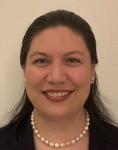
Ana Ávila is a Costa Rican diplomat based in Vienna. She is currently responsible of matters related to IAEA, UNOOSA, CTBTO, HCOC, and transversal gender issues. During her posting in Vienna, she has also been the officer in charge of UNCITRAL, as well as other bilateral and consular activities. Ana studied Physics and International Affairs and followed with the Master’s Program on Diplomacy offered by the University of Costa Rica in collaboration with the Diplomatic Institute of Foreign Affairs of the Ministry of Foreign Affairs of Costa Rica. In February 2010, she joined the Foreign Service and started her career in the Consular Department. Shortly after that, she was posted in India, where she was chosen as part of the staff in charge of opening the Embassy of Costa Rica in New Delhi. On her return to Costa Rica, Ms. Avila was the officer for the bilateral relations with countries in Asia, Africa and Oceania, and the Focal Point for the Forum for East Asia-Latin America Cooperation or (FEALAC). In August 2014 she joined the Permanent Mission of Costa Rica to the International Organisms in Vienna.
Moderator
Claudiu Mihai Tăiatu
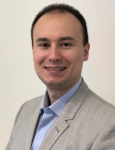
Claudiu Mihai Tăiatu is a Romanian lawyer, he graduated in 2017 from the Adv. LL.M. of Air and Space Law of the International Institute of Air and Space Law (IIASL), Leiden University, The Netherlands and in 2018 from the International Space University (ISU), Space Studies Program (SSP18). Currently, he is working with the European Space Policy Institute (ESPI) in projects related to space law and policy. He was awarded in 2017 with the International Institute of Space Law (IISL) Prof. Dr. I.H.Ph. Diederiks-Verschoor Award for his research on Space Traffic Management. In 2018 he was awarded at the Worldwide Space Law Essay Competition “Legal Aspects Relating to Satellite Constellations” organized by the ECSL, ESPI and DLR. In 2019 he was awarded with Secure World Foundation (SWF) Scholarship to attend the International Astronautical Congress (IAC) in Washington D.C. He successfully completed several internships at the Regulatory Affairs Department of OneWeb, the International Telecommunication Union (ITU) Radiocommunication Bureau, ESPI and UNIDROIT. He is part of the SGAC Space Law and Policy Newsletter Team.
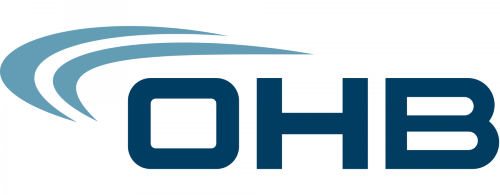
Space, the final frontier.
Description:
Space, the final frontier. A new marketplace is opening up to Earth-based customers, businesses, investors & even private individuals, and the opportunities are out of this world. This workshop will explore the questions and answers relating to the commercialisation of space. The expansion of LEO satellite services and infrastructure, the commercialisation of the ISS, colonisation of the moon and prospecting asteroids for resources see immense commercial benefits for industry. How do we make these dreams and visions become a reality, and how should we sustain the development and service provision into the future. We will discuss this here.
Objectives:
- Share how delegates see the current efforts towards commercialisation of space happening in their regions
- Debate about what are the domains where commercialisation of space needs or will happen first (apart from the already existing telecommunications)
- Discuss which are the main weak points towards the commercialisation of space (are they technical, political, financial…), and define which are the first steps towards the creation of a sustainable market.
Focus Questions:
- Which are the domains where commercialisation of space can bring a great benefit to both the industrial as well as the governmental space sector? Will it be on OOS, LEO, Moon, Asteroid Resources, EO downstream applications, other?
- How can the political and industrial policies help to push forward the commercialisation of space in the different regions of the world, and how can we push it globally to avoid monopolization of some domains?
- How can we create a sustainable market in the different identified domains?
Expected Outcomes:
- Identify the domains more likely to be commercialised
- Propose solutions to overcome some of the identified weak points for each domain
- Define the first steps towards a sustainable commercialisation of space in the different domains (both technical as well as political)
Subject Matter Expert
Andrea Jaime
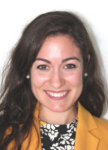
Andrea Jaime Albalat (Andrea Jaime) is a Spanish aerospace engineer, currently working as Business Development Manager at OHB System AG. She earned, in 2007, a double bachelors degree in both Aeronautical and Mechanical Engineering from the Universitat Politecnica de Catalunya (UPC), in Barcelona. During these studies, she spent one year at the North East of Wales Institute (NEWI) in the United Kingdom. In 2010, Andrea earned her masters in Aerospace Science and Technology, also from UPC in Barcelona (2010). Additionally, Andrea is an alumni of the International Space University’s (ISU’s) Summer Studies Program (SSP) 2009 which was hosted by the NASA Ames Research Center in California, USA, and has also completed the CVA (Communauté des Villes Ariane) Summer School, hosted by Rome in 2011.
She started her professional career during her studies, working as part of organisational committees of several workshops and conferences including ISU’s SSP 2008 in Barcelona. After her graduation, Andrea has worked at the European Space Agency as a Young Graduate Trainee. Based at ESTEC in the Netherlands she worked for the Human Spaceflight and Operations Directorate. In October 2011, she moved to Vienna to work as the Deputy Executive Director of SGAC, which led her to become the Executive Director in July 2012. In 2015 she moved to Munich, Germany, and started working as Business Development Manager for OHB SE, as domain manager for Human Spaceflight, Microgravity and Exploration.
Subject Matter Expert
Tommy Sanford
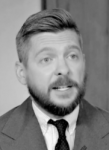
Tommy Sanford is the Executive Director of the Commercial Spaceflight Federation. CSF is the leading national trade association for the commercial space industry, with more than 85 member companies and organizations across the United States. CSF is focused on laying the foundation for a sustainable space economy and democratizing access to space for scientists, students, civilians, and businesses.
At CSF, Sanford leads the policy development and lobbying efforts, where he is focused on promoting policies that enable fair and open competition, spur innovation, and expand public-private partnerships. Sanford has led CSF’s efforts on the Commercial Space Launch Acts, NASA Authorization & Appropriations Acts, and funding FAA’s Office of Commercial Space Transportation.
Sanford has led CSF’s efforts to expand the utilization of commercial reusable suborbital platforms for research, technology development, and human-tended research, expand commercialization of low-Earth orbit (LEO), and fully leverage public-private partnerships for NASA’S return to the Moon and Mars, and modernizing NASA’s planetary protection policies.
In 2019, Sanford was a member of the NASA Planetary Protection Independent Review Board (PPIRB). In 2019 and 2020, Sanford was a member of the NASA International Space Station Cooperative Agreement Independent Review Team (IRT).
Before working at CSF, Sanford served as Government Affairs Associate at the Space Foundation for five years. At the Space Foundation, Tommy was responsible for analyzing and implementing policy strategies in the aerospace, defense, and international arenas. Prior to his position at the Space Foundation, Sanford worked at the Department of Commerce’s Office of Space Commercialization and on Capitol Hill for the House of Representatives Science, Space, and Technology Committee.
Subject Matter Expert
Timo Stuffler

Timo Stuffler started his career in 1993 at Kayser-Threde with a PhD in physics and worked as a project and system engineer in mostly scientific satellite-born payload projects like XMM-Newton, Integral, Plasma Crystal or PACS/Herschel. He then changed to lead the Business Development at Kayser-Threde a company that grew from 170 to nearly 400 employees between 2000 and 2014. After the merge of Kayser-Threde and OHB System AG in September 2014, he took the position of Director Business Development at OHB-System; a company with now over 1,000 employees. Beside interests in all aspects of space, he has a focus for technologies being a key factor for successful space projects.
Subject Matter Expert
Markus Geiss
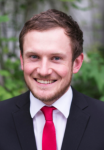
Markus Geiss holds a PhD and Master’s in aerospace engineering from the University of Colorado Boulder where his research was on 4D Printing. Before that, Markus was a dual student with Airbus Space and the University of Applied Sciences in Munich, Germany. He is also a graduate of the International Space University’s 2014 Space Studies Program. Currently, Markus is a Structural and Thermal Development Engineer at OHB in Munich, Germany working on several R&D projects related to advanced manufacturing for space telescopes. Besides that, Markus is part of the NewSpace technology startup DcubeD and the startup Hopstronautix where he promotes awareness and outreach for Space via SpaceBeer.
Moderator
Carlos Mariscal

Carlos Mariscal earned his Computer Engineer bachelor’s degree from the National Autonomous University of Mexico. From 2014 through 2018 he leaded the student team UNAM Space, aimed to designing and building autonomous rover prototypes, which contested in three NASA competitions; recognized with the Hans von Muldau Team award by the IAF and Student-Researcher by the Mexican Space Agency for the International Student Education Board during the IAC in 2016. He attended the Southern Hemisphere Space Studies Program 2017 from the International Space University in Adelaide, Australia. As well he served as NPoC in Mexico from 2017 thru 2020 and collaborates to the Space Exploration Project Group. He has also experience in analogue missions, which consists of his contribution as Principal Investigator and Technical Support team member in PMAS 2017 and his role in crew 201 of MDRS as Executive Officer. Carlos is Founder and CEO of Dereum Labs, a startup that aims on facilitating space access to earth industries by providing infrastructure and data services to take their businesses to space. The company targets its first lunar mission in 2022.

Special Track
Fostering gender equality, diversity and inclusion in the space sector in support of UN SDGs 5 and 10
Since the formation of SGAC in 1999, during the Third United Nations Conference on the Exploration and Peaceful Uses of Outer Space (UNISPACE III) held in Vienna, SGAC has set gender equality, alongside diversity and inclusion as one of its key goals. SGAC strives to promote and maintain diversity, inclusion and equality among all its members. This can be seen in statistics pertaining to the team composition (regularly having 40% female team members, and members from all SGAC regions), membership base (which constitutes of 30% female participants, and overall representation from 150 countries), scholarship distribution, and geographic location events. SGAC’s goal has been to provide opportunities for all members with disregard to age, sex, disability, race, ethnicity, origin, religion or economic or another status in line with its mission.
In the 2020 Strategic plan of SGAC, the core principles of working together, acting with respect and integrity, embracing diversity, representing the space generation, fostering improvement, being open and transparent, and being proactive, were highlighted. Such principles are visible in SGAC events and activities, which cover different regions in the world, provide considerable support for engaging women, younger members and those without the financial means to participate in SGAC activities.
SGAC’s contributions to diversity and inclusion have been noticed in the past, having won the IAF Excellence in 3G (Gender, Geography, Generation) Diversity Award in 2018. Specific support programs for developing countries through a strong network of Regional Coordinators, National Points of Contact and volunteers in those regions and countries further emphasize inclusion and involvement of the young generation in space science and technology between nations. Despite all these improvements, there is still more than SGAC and other members of the space sector can do to bridge the gap in diversity and inclusion within the sector.
Purpose
Thus, this year’s special track takes a more in-depth look at the challenges of women and under-represented minorities in space science and industry. The aim is to:
- Identify the root causes and critical indicators of inequality, and barriers of entry for women and minorities in the sector, taking into account differences in cultures and countries.
- Assess the impact of institutional, environmental and individual initiatives to improve diversity and inclusion
- Showcase the importance of positive role models in empowering minorities and women
- Study successful and unsuccessful examples of initiatives to elevate diversity and inclusion and the role of women and minorities, and document lessons learned from these experiences
- Provide recommendations to SGAC, its partners and supporters and the broad space community on initiatives, actions and tools that can be used to move the space sector towards achieving the goals of SDGs 5 and 10.
This online and interactive workshop will include ignite talks, speeches by Subject Matter Expert (SME), discussion of participants and cooperative presentations.
Main headlines to be discussed:
- The role of language (be it in the recruitment process, in communication campaigns, etc.).
- Impact of role models and organisations focused on diversity and inclusion (such as Women in Aerospace) in fostering diversity and inclusion at local, regional and global levels.
- Suggestions for new initiatives, toolkits and approaches to improve diversity and inclusion.
- Current status and future demands in different regions with respect to gender equality and diversity.
- Diversity, inclusion and gender equality promotion and support mechanisms in STEM-related policy-making.
- The impact of women and minorities in innovation and entrepreneurship (E&I), Industry 4.0 and sectoral leadership.
- SGAC’s short, mid and long term strategies to provide gender equality and diversity and contribute to Space 2030 Agenda for sustainable development and raise awareness.
Questions for discussion
Focus: What environmental factors in academia, industry, and other parts of the sector can be adjusted to better engage with women and minorities, and empower them to enter or lead the sector? What role do individuals such as role models play in this process?
Background: Only 29.3% of the world’s researchers are female and women in the aerospace industry take up a quarter of the workforce. Many girls in underdeveloped regions are undereducated due to cultural misunderstandings and lack of support from family or greater society. Similar trends exist in terms of opportunities for different ethnic groups as well. There are fundamental barriers and social biases that lead to these gaps in STEM, academia, and industry. Discussion is required to find the root causes of these gaps, identify trends in this area and understand how individuals and organisations can provide a safer more inclusive environment and equal opportunities for women and other minorities to contribute to the sector.
Focus: What role are currently women and underrepresented groups playing in academia, government, innovation and entrepreneurship, Industry 4.0 and New Space 4.0? How can their representation be improved?
Background: Historical progress of women and minorities in these sectors, can show us some of the mechanisms that have worked, and also help better understand how these mechanisms can be strengthened. This can help form recommendations for policymakers on improving the status of women and underrepresented groups in the space sector, opening up new horizons.
Focus: How can SGAC help improve diversity and inclusion in the space sector in the context of the Space 2030 Agenda for sustainable development?
Background: As an organization with representation in different countries, and a member base that is inherently diverse, SGAC has a great interest in diversity and inclusion, and many members wish to contribute to initiatives that can help implement SDG 5 and 10. The inherent diversity of our members means we can take into account social and cultural differences in our initiatives and can help raise awareness and engage with those that can implement change at the local, regional and global level.
Subject Matter Expert
Hélène Ben Aim Drieux
.
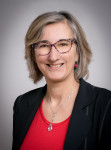
Hélène Ben Aim Drieux is a “Maker”. Whatever the issues that are entrusted to her, she provides end-to-end solutions. Expert, project manager, auditor, strategic plan manager, or space representative in a ministerial office enforced by 30 years of experience at CNES, she has been responsible for open innovation for 7 years. Hélène’s Project COMET strengthens the skills and know-how of some 5000 experts in networks including 800 CNES engineers. The goal is to keep all of them at their highest technical levels, to face the current exponential increase of knowledge. Being pragmatic and collaborative, Helene implements frugal concrete solutions using the “test and learn” methodology. His motto: “the best is the enemy of good”. Convinced of the richness of diversity, she is Chairwoman of the Paris group of Women in Aerospace Europe.
Subject Matter Expert & Keynote Speaker
Guillaume Prigent
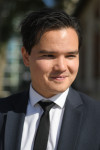
Guillaume PRIGENT holds a Ph.D. in Physics and joined the CNES in 2013 at the launcher Directorate. Since 2018, Guillaume works at the CNES Directorate of Innovation, Applications and Sciences as open innovation and ideation expert. He is also the head of the international space hackathon ActInSpace (More than 50 countries all over the word). He is work consists in developing and promoting the downstream applications of space solutions in new business sectors and by new players.
Subject Matter Expert
Yulia Akisheva
.
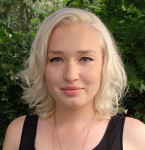
Russian-Swedish space romantic passionate about human exploration of Mars, sustainable space exploration, and international collaboration, she is also an advocate for diversity, gender equity and gender equality in the aerospace sector.
Her roots stretch back to Khabarovsk, a Far Eastern city in Russia so far from the space industry, she hid her space dream so deep that not a single person knew of her passion until 18 years later, already in Stockholm, Sweden, after she had applied exclusively for Aerospace Engineering at KTH. Having evolved from someone who had once buried her dream to dig it back up halfway around the globe to somebody friends call “the Mars girl”, she would like to tell everyone never to give up on your dreams. Her dream later brought her to Toulouse, France where she finished her Master’s degrees and recently started her engineering career. Altogether, following this dream has brought her to the most interesting places and situations, and gifted her a global perspective towards life, and work as part of it.
Within the SGAC, she has had the privilege to work on the topics of diversity and gender alongside the most brilliant teammates for a year now. Together they have started a new initiative called Our Giant Leap. Among other objectives, they search for solutions that would facilitate a stronger female presence in the aerospace field.
Subject Matter Expert
Lucie Campagnolo
.
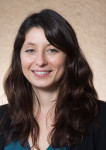
Lucie Campagnolo, PhD, is innovation manager at MEDES, the Institute for Space Medicine and Physiology, subsidiary of the French Space Agency (CNES) and Toulouse hospital. MEDES is a hybrid structure which aims at accelerating innovation for Health on Earth and in Space. She is also in charge of healthcare applications at the CNES to promote the use of space-based solutions for citizen’s health and well-being.
Subject Matter Expert
Timiebi Aganaba-Jeanty
.
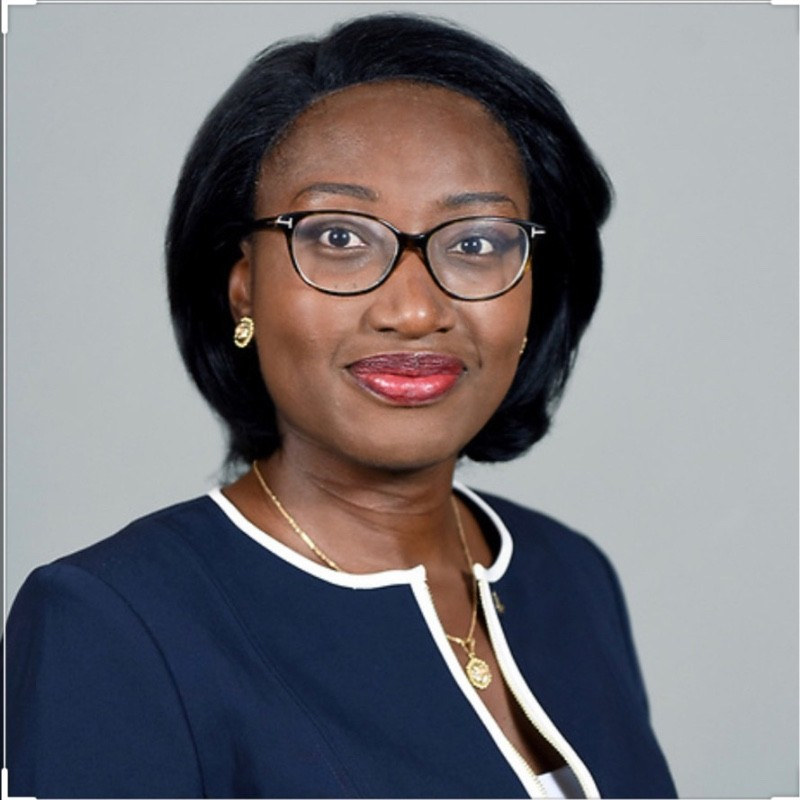
Timiebi Aganaba is architect of the Space Governance Lab concept.
She is an assistant professor in the School for the Future of Innovation in Society with a courtesy appointment at the Sandra Day O’Connor College of Law at Arizona State University, USA. Timiebi was a post-doctoral fellow and fellow at the Centre for International Governance Innovation (CIGI) based in Waterloo, Ontario Canada where she focused on environmental governance, and participated in a Canada-India Track 1.5 Dialouge and was an observer at the United Nations Framework Convention on Climate Change in Bonn and Marrakech.
Timiebi was Executive Director of the World Space Week Association coordinating the global response to the UN 1999 declaration that World Space Week should be celebrated Oct 4-10 annually. She is currently on the Advisory Board for the Space Generation Advisory Council supporting the UN Programme on Space Applications. She is also on the Advisory Board of World View Enterprises.
Timiebi has represented Nigeria at the UN as a Next Generation Aviation Professional at the International Civil Aviation Organization ModelCouncil in Montreal (2014) and at the Legal subcommittee of the Committee on the Peaceful Uses of Outer space in Vienna (2011).
Timiebi produced and hosted the 12-episode Ladies Do Launch podcast.
Keynote Speaker
Ersilia Vaudo

Ersilia Vaudo Scarpetta holds a Degree in Physics, with specialisation in Astrophysics and has a further education in Economics. She has been working at the European Space Agency since 1991, where she is currently Chief Diversity Officer. During her career at ESA, she held several positions i.a. in international relations, elaboration of high level strategies, preparation of decisions at Member States’ ministerial meetings, network with think tanks.
She participated to the formulation of the first ESA Exploration programme, worked as coordinator of Science and Human Spaceflight activities and had the responsibility as Executive Secretary of the Science and Technology Advisory Group on Exploration in charge of selecting experiments for exploration missions, including ExoMars. She spent four years at the ESA Washington Office ensuring relations with NASA and US stakeholders, and was Member of the Board of Directors of Women in Aerospace USA.
Currently she is member of International Women Forum, of the Women’s Forum for the Economy and Society Daring Circle, and of Women in Aerospace – Europe. Ersilia Vaudo wrote a high number of articles on science and space for the general public and participated to events and various TEDx talks, as strong believer in the power of inspiration and transformation that science can have on people and in particular on the young generations.
Keynote Speaker
Luisella Giulicchi
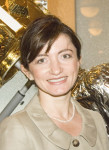
Luisella Giulicchi is a System Manager the European Space Agency (ESA) for the Copernicus Program. Copernicus is the largest worldwide operational Earth Observation program to date, funded by ESA and European Commission.
Luisella has a M.Sc. (with honors), Electronic Engineering from the University of Florence, Italy and M.S. in Space System Engineering from the University of Delft, Netherlands. She worked as Research Fellow at CERN (European Particle Physics Laboratory), Switzerland, before joining ESA in the Netherlands. In the early phases of her career she was responsible for defining and managing R&D programs for the aerospace applications of GPS technology and for guidance navigation and control systems. Since then she has held several technical and programmatic management positions in space projects, from definition to development, launch and in orbit exploitation of space missions. These include: ESA/Roscosmos Mercury Lander study; ESA/JAXA Bepi Colombo; SMART-1, the first European Moon mission; ESA/NASA LISA Pathfinder; EU/ESA Copernicus Sentinel-1 SAR imaging mission; ESA/EU, Eumetsat, NASA, NOAA, CNES Copernicus Sentinel-6/Jason-CS project, an operational Ocean Surface Topography Mission.
Luisella has authored many scientific and technical papers and has been associate editor for several publications and scientific journals. In addition, throughout her career Luisella has actively participated in several professional organizations: American Institute of Aeronautics and Astronautics (AIAA), International Federation of Automatic Controls (IFAC), American Astronautical Society (AAS); Council of European Aerospace Societies (CEAS). Luisella is a Fellow of the Royal Aeronautical Society. Luisella is an Associate Fellow of the AIAA and she is currently Member of the AIAA Board of Trustees. She also a member of the AIAA Finance, International Activities and Honors and Awards Committees.
Her extensive and unique experience in Board of Directors and in the Governance of non-for- profit association together with her passion for promoting diversity in the work environment brought her to lead WIA Europe. Currently she is member of International Women Forum, of the Women’s Forum for the Economy and Society Daring Circle, and of Women in Aerospace – Europe. Ersilia Vaudo wrote a high number of articles on science and space for the general public and participated to events and various TEDx talks, as strong believer in the power of inspiration and transformation that science can have on people and in particular on the young generations.
Moderator
Ali Nasseri
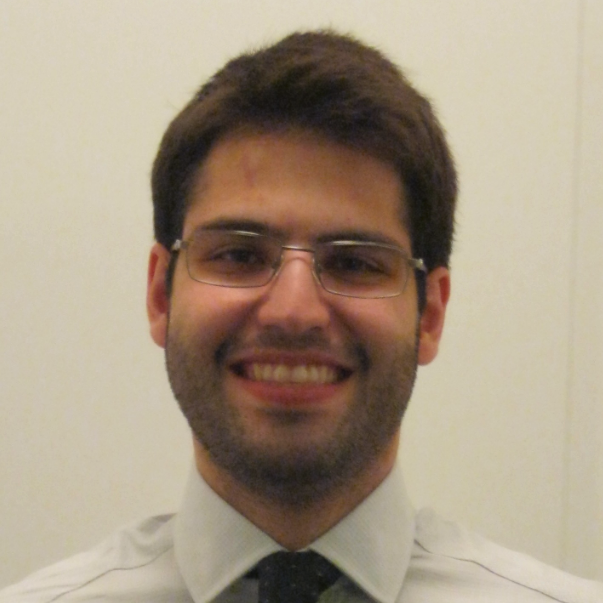
Ali is an Executive Research Coordinator at the University of British Columbia, managing the Programming Languages at Artificial Intelligence (PLAI) group. Prior to joining UBC, he worked as an aerospace consultant with Defence Research and Development Canada, and completed a European Commission funded Marie Curie Early Stage Research Fellowship at ISI Foundation in Italy, where he worked as part of the ITN-WALL project on modeling magnetic phenomena in nanomaterials. Ali is also a former Chair of SGAC, serving in this role from 2016 to 2018. Prior to becoming Chair, he served as the SGAC Operations Manager, Executive Secretary, and Space Safety and Sustainability project group co-lead among other roles. Outside of SGAC, Ali is the vice-chair of the IAF Space Education and Outreach Committee, a member of the IAF Workforce Development-Young Professional Program (WD-YPP) committee and a recipient of the IAF Young Space Leader Award. With a background in aerospace engineering and physics, Ali has been active in teaching since 2009, most notably at the University of Toronto where he taught with the Engineering Outreach Office, the Engineering Strategies and Practices program and the Aircraft Design course throughout the years. He also volunteers with Let’s Talk Science, and Skype A Scientist, and was a mentor of the Ontario Online Research Coop program.

